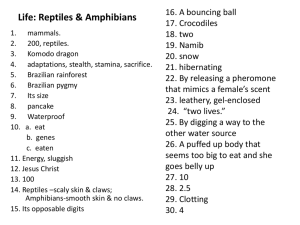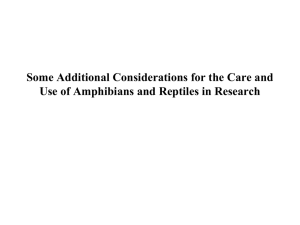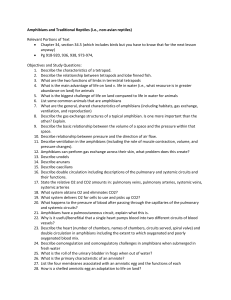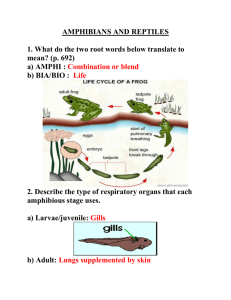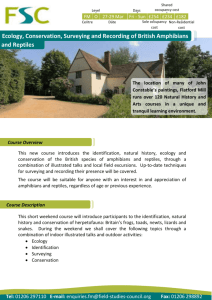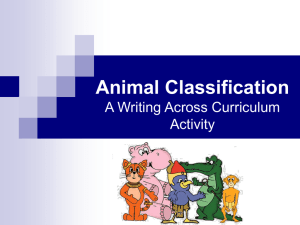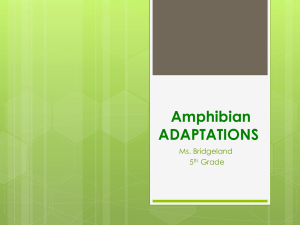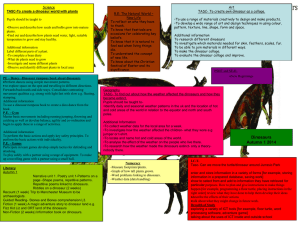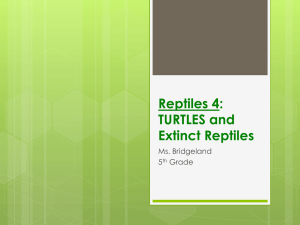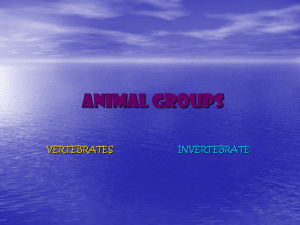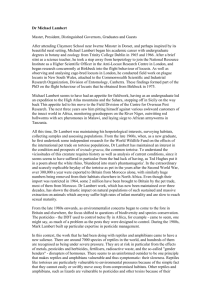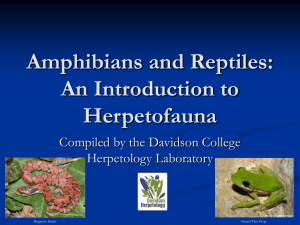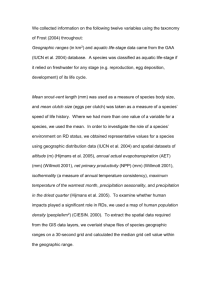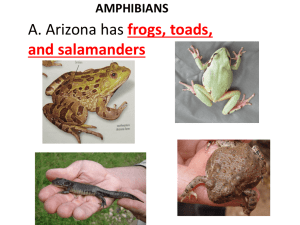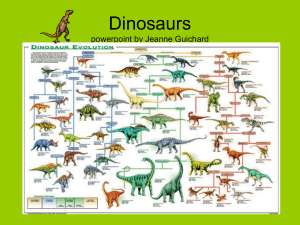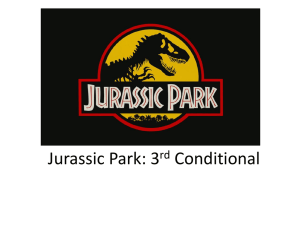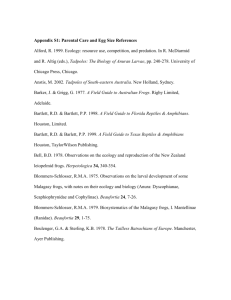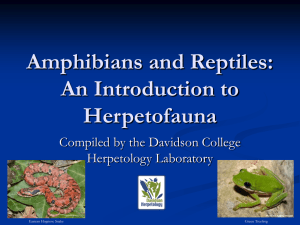DGWUnit1Reptiles
advertisement
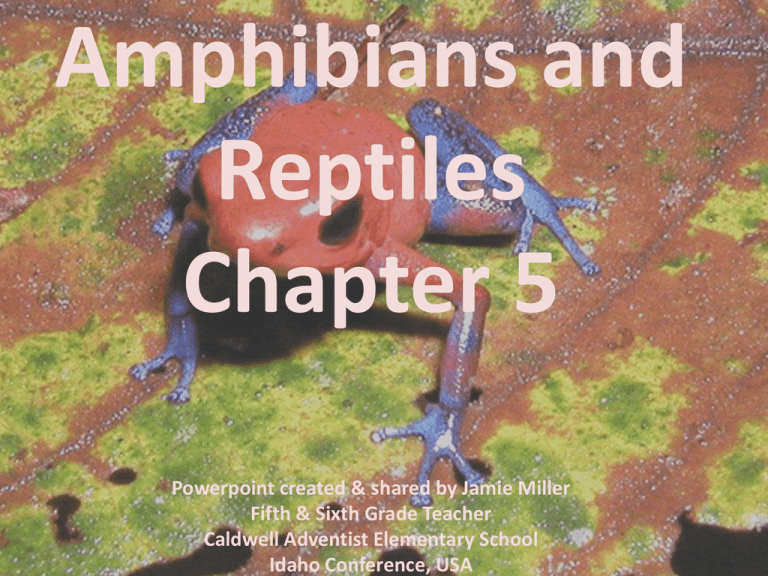
Amphibians and Reptiles Chapter 5 Powerpoint created & shared by Jamie Miller Fifth & Sixth Grade Teacher Caldwell Adventist Elementary School Idaho Conference, USA 1. Which amphibian has tentacles? a. b. c. d. Newt Caecilian Tadpole Toad 2.The largest dinosaur ever found was the a. Compsognathus b. Seismosaurus c. Stegosaurus d. None of these 3. Which of the following facts are true about amphibians? a. b. c. d. Amphibians live on land and water Amphibians have toes without claws Amphibians have scale less skin All of these 4.Which does not occur as a tadpole changes into an adult frog? a. Legs develop b. Lungs develop c. Scales develop d. The tail is absorbed Which of the following is the most common order of amphibians? 5. a. Frogs and toads b. Snakes c. Caecilians d. Dinosaurs 6. Which of the following are worm-shaped? a. Frogs and toads b. Salamanders c. Caecilian d. Dinosaurs 7. The largest amphibian is a a. Frog b. Salamanders c. Caecilian d. Dinosaur 8. a. b. c. d. Which fact is true about reptiles? Have dry, scaly skin Have toes without claws Lay eggs in water Are born without lungs 9. Which of these animals is not a reptile? a. b. c. d. A turtle A toad A crocodile A lizard 10. Which fact is true about poisonous snakes? a. They usually kill their prey by squeezing it b. They are not really dangerous c. They kill their prey by injecting poison d. All of these 11. Which fact is true for salamanders? a. b. c. d. The young always have lungs The adults always have lungs The adults always have tails All of these 12. a. b. c. d. Which animals does not undergo metamorphosis? Alligator Salamander Bullfrog Toad 13. Which characteristic is unique to pit vipers? a. b. c. d. Fangs Jaws that unhinge Venom Heat sensors 14. Which of the following has flippers? a. b. c. d. Leatherback turtle Tortoise Cobra Iguana 15. Which animal lacks external ears? a. b. c. d. Alligator Crocodile Gopher snake Soft-shelled turtle 16. Which characteristic is used to classify dinosaurs into two groups? a. b. c. d. Size Habitat Jaw Hip Part 2 Matching Match the picture of each dinosaur with the correct name or description. Write the letter of the dinosaur on the line provided. 17. ____ Diplodocus 18. ____ Plesiosaurus 19. ____ Gave birth to live young 20. ____ Megalosaurus 21. ____ Had a second brain in its tail 22. ____ Triceratops 17. 18. 19. 20. 21. 22. e d f c a h 23. What are the stages in the life cycle of a frog? The stages in the life cycle of a frog include egg, tadpole, and adult. 24. How are amphibians different from reptiles? Amphibians have moist, scale less skin. Reptiles have dry, scaled skin. Amphibians have toes without claws. Reptiles have toes with claws. Amphibians lay eggs in water. Reptiles usually lay their eggs on land. Amphibians usually live in moist, damp areas. Reptiles usually live in dry areas. 25. Explain how creation scientists and evolution scientists differ in their explanation of dinosaurs. Creationists speculate that dinosaurs may have resulted from God’s creation or from sudden mutations or from breeding experiments of pre-Flood people. They believe that the dinosaurs died as result of the Flood. Evolutionists speculate that dinosaurs appeared after millions of years of evolving from smaller reptile-like animals. They believed that the dinosaurs died because they could not compete with other animals or because of drastic weather changes that resulted from the crash of a huge meteor with Earth.
